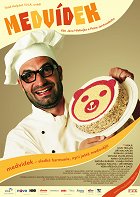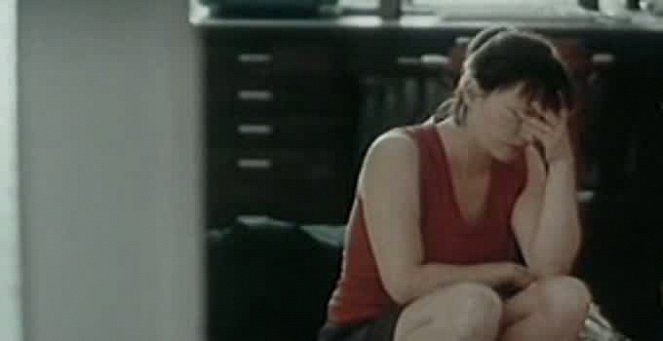Directed by:
Jan HřebejkCinematography:
Jan MalířCast:
Jiří Macháček, Roman Luknár, Ivan Trojan, Tatiana Dyková, Aňa Geislerová, Nataša Burger, Klára Issová, Zuzana Fialová, Jiří Menzel, Věra Křesadlová (more)Plots(1)
Jirka, Ivan, and Roman have been friends since they were all students together. Today they are around thirty-five or forty, and have different professions and careers, but their friendship has endured. They’re married – Jirka’s wife is called Vanda, Roman’s Anna, and Ivan’s Johanka – they’re successful, and they’re all working on their careers. Jirka owns a private gallery, Roman is a doctor, and Ivan a diplomat. Each of the three friends has a secret. Those secrets come to light, radically changing their lives. How will the three friends cope with the trials facing them? Will their friendship survive? And does that kind of friendship exist between women too? (official distributor synopsis)
(more)Reviews (4)
The theme of this Hřebejk movie is undeniably ambitious - it finally stands out from the typical Jarchov-Hřebejkov movies. However, it creates the impression of a montage of the most important, and not necessarily the best, moments of something much larger. In essence, Teddy Bear met the same fate as The Land Gone Wild. Except for the obvious detail that it was not edited together from the material of a multi-part series, but was shot that way. Not that there is a lack of continuity or that the characters are not going anywhere. They are… but there are too many jumps. Each character gets his or her five minutes in the limelight, then it rushes on to the next one. Roman's character arc in particular is completely destroyed by this form of storytelling. Teddy Bear is a good movie which would have benefited from either a significantly longer running time or fewer characters. Also, the lame attempts at funny lines do not add anything to the end result, although they do work to a certain extent.
()
No aggressive undermining of relationships, no bravado, no affectation. Hřebejk shocks only by the humility with which he approaches the material, by being aware that not everything has to work out for him, and last but not least by the fact that he succeeds with Medvídek. The paradox is that one of the director's trademarks, his favorite "parents sitting at the table discussing their mistakes", hurts him the most. The duo Menzel-Křesadlová has the potential, but their intermezzo is ultimately out of place and undermines the atmosphere built up until then. Fortunately, Jarchovský's script does not rush, but also does not drag on, giving every character enough space for the final catharsis to work perfectly and making us forget about artificial moments like "an ordinary afternoon of an unhappy married woman." It is still just a contemplative tragicomedy about relationships, but connected so skillfully that the authors become competitive again.
()
If I ignore the violent elements of the inorganically-inserted retro in the form of the pair of non-actors Menzel and Kresadlová (indeed, next to Věra, Jiří also acts almost perfectly) and focus on the contemporary realistic relationship drama based on the great Slovak guests Luknár and Fialová, then I am delighted. I didn't expect that the perfectly coordinated Hřebejk team and the same faces could make something like this. The etudes of Macháček and Trojan naturally have their limits but in the context of the Roman acquaintances it all fits together beautifully and matures as the years go by. Ana and Zuzana's meeting over menthol was magnificent.
()
Teddy Bear is one of the weaker films that Hřebejk has made. I saw it in the movie theater on opening night, but having now seen it a second time, I have to admit that I really didn't remember much of it. I guess that's a bit of a testament to its qualities, although in some cases the acting is truly excellent.
()

